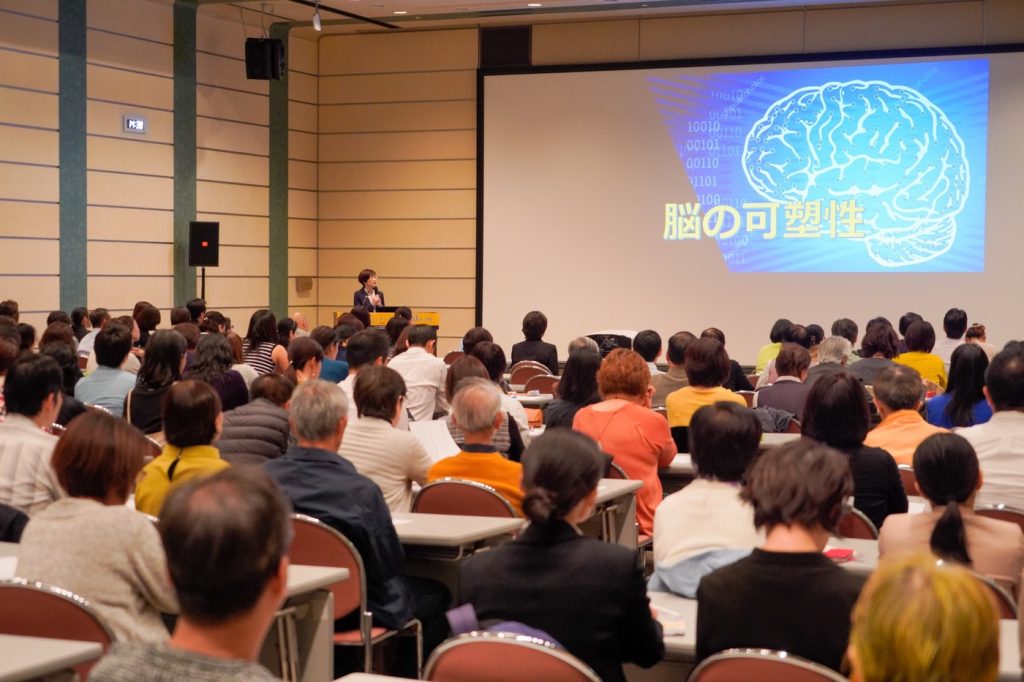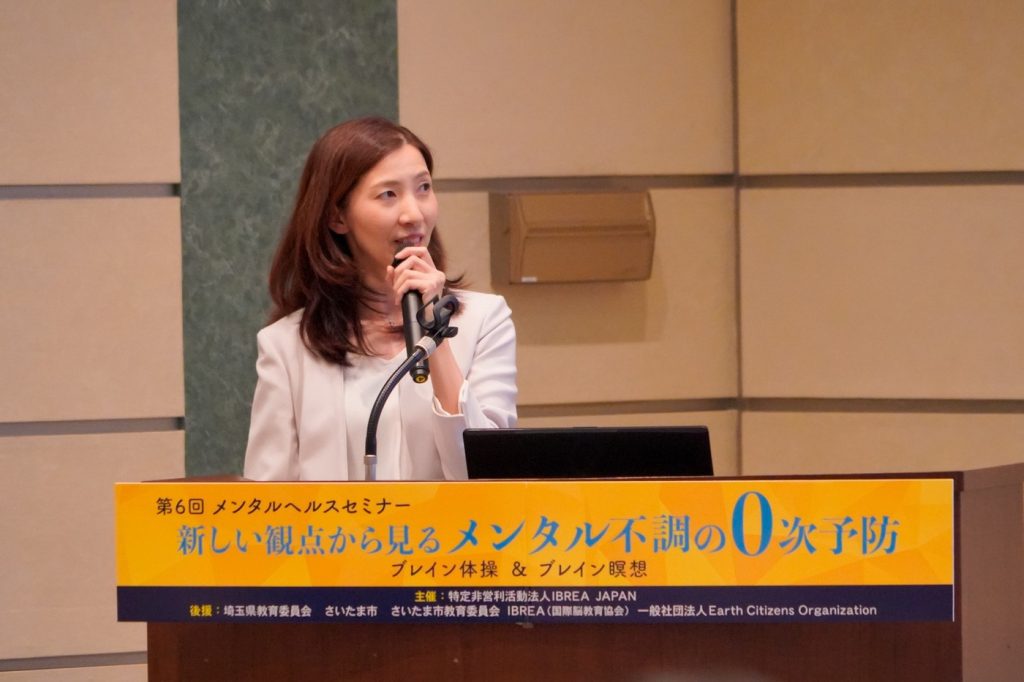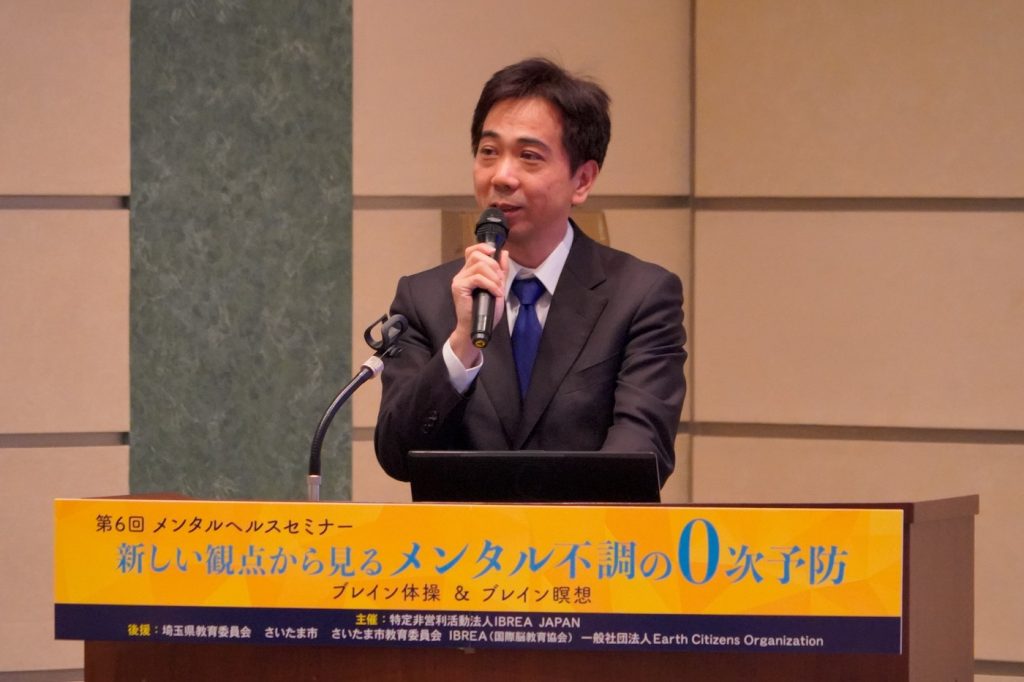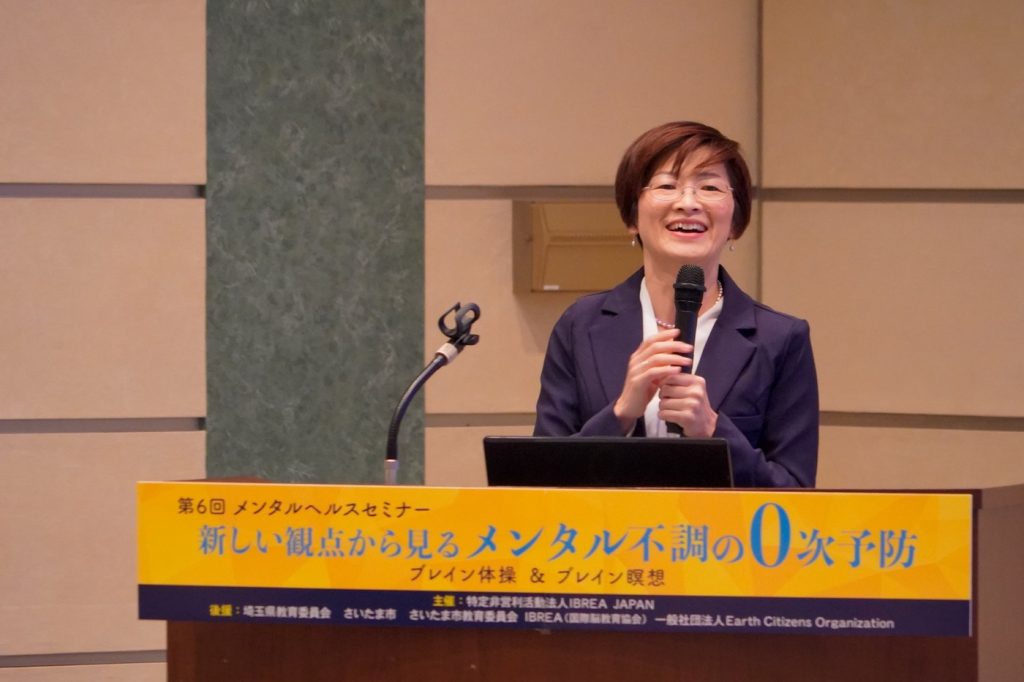- Theme: Brain exercise and meditation for primordial prevention of mental deterioration from a new perspective
- Date: November 2, 2019
- Venue: Sonic City Hall in Saitama City(埼玉市)
‘Primordial prevention(0次予防)’ is a novel concept gaining attention in Japan to improve mental health in the workplace. This is a recent movement to improve workplace culture to make each employee feel rewarded for their work and enhance mental health to prevent the status from being transformed into a disease. IBREA Japan presented various cases of adopting Brain Exercise and Brain Meditation to achieve primordial prevention in workplaces at the Sixth Global Mental Health Seminar.
Mental health in workplaces and the potential of Brain Education
Tanaka Yukari(田中 ゆかり) | President of IBREA-Japan
Tanaka Yukari defined primordial prevention as understanding our stress and controlling it effectively. She said, “Our brain has the power of self-control based on understanding the given constitution.
People react to stress differently depending on how they use their brain, and it is Brain Education that enables them to bring out the power of the brain.” She also mentioned, “When more people stay healthy and feel happy and peaceful through Brain Education, society and organization can be healthier and happier.”
The outcome of introducing the Brain Education Program
Shirahase Akira(白波瀬 章) | President at NTT SmartConnect Corporation
Shirahase Akira(白波瀬 章), President of NTT SmartConnect Corporation, a subsidiary of Japan’s leading telecommunications company NTT, presented “The way of NTT SmartConnect for health management to trigger the passion of employees” as a guest speaker. Based on the belief that helping employees
maintain and improve their health is a way of investing to increase efficiency and productivity, NTT SmartConnect is creating a healthy corporate culture. He said that the company focuses on implementing primordial prevention measures. He added, “We encourage employees to understand themselves better and adopt new methods to improve mental health following the trends.”
As an example of increasing self-awareness on health, he presented a case for holding Brain Education workshops, providing the employees with hands-on experience of exercise, meditation, and healing experience as tools to build good daily habits. He added that employees were highly engaged in the Brain Education workshop and planned to proactively adopt Brain Education training methods such as meditation before meetings.
Managing work-related stress with Brain Education
Morikawa Yoshimi(森川 佳) | Occupational stress management specialist
Morikawa Yoshimi emphasized three powers that would help people manage their stress better. First, the power to recognize the source of stress; second, the power to endure stress reactions; and third, the power to return to the original state.
Ultimately, the power to restore the mind and body under stress to their original state is most important. Thus, she explained that we should be the master of our brain to manage the sources of stress. She described the process of developing three powers of stress management through Brain Education training as follows: “Brain exercise makes your body flexible and strengthens the lower abdomen. Brain meditation prevents people from being swayed by emotions and helps them raise their inner power to see things from the right perspective. Brain healing creates a positive mood to increase teamwork by developing empathy with colleagues. By repeating these fundamental cycles, we can bring a positive change to the entire organization.”
She also outlined occupational stress management programs for a construction company and the employees and caregivers of a private nursing home. She presented a positive change between the stress levels and brainwaves before and after the program. Those who were more nervous than others relieved their tension, and people who used the left brain more were shown to activate their right brain. Furthermore, those who felt less motivated gained vitality after the program.





